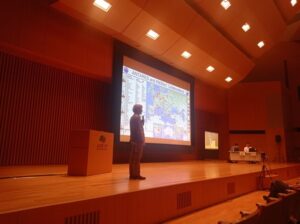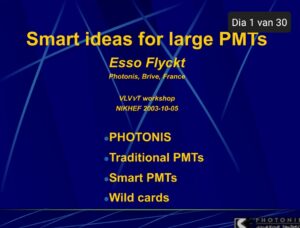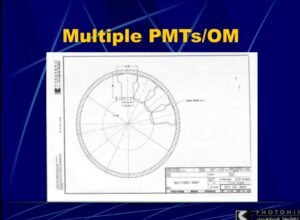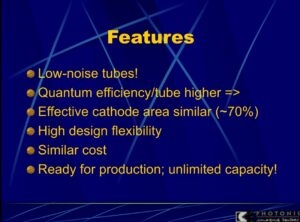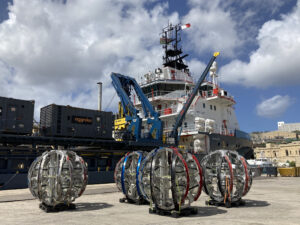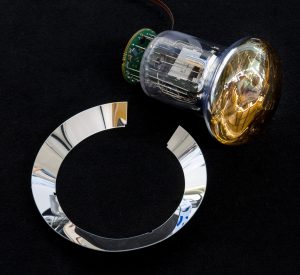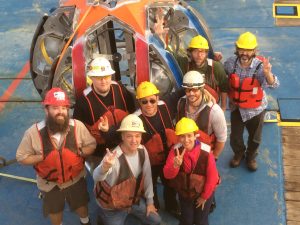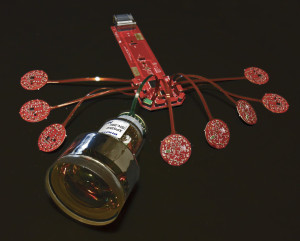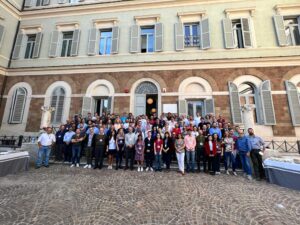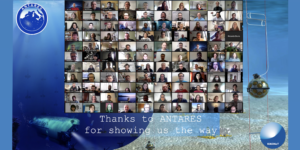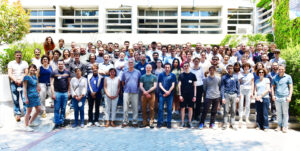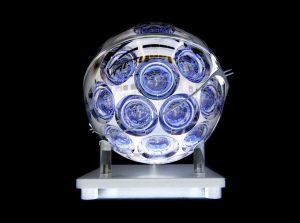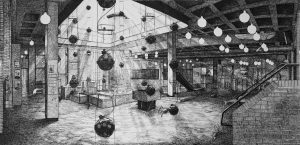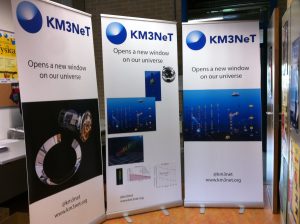Scientific advancement
KM3NeT contributes to the advancement of science by actively participating in international conferences and workshops and by publications in peer-reviewed journals and preprints on arXiv. Via these common scientific communication channels scientists of KM3NeT share new neutrino measurements, knowledge and insight. Thus, they contribute to multi-messenger observation of the Universe and to a better understanding of the physics of neutrinos.
Practically, the Conference Committee assigns speakers and poster-presenters to conferences and guards the scientific quality of the presented material. The Publication Committee supervises the open-access publishing of Collaboration papers in peer-reviewed papers and guards the quality of the papers. The mandate of the Open Science Committee is to implement, execute and maintain the procedures for data and software of the Open Science Policy of KM3NeT.
The KM3NeT management actively participates in the Global Neutrino Network (GNN) to foster the collaboration between the large volume neutrino telescopes worldwide. On the initiative of KM3NeT the GNN organises the VLVnT workshop (old-school website), an international workshop on the physics and technologies of large volume telescopes. At the first VLVnT workshop in 2003 the inspiration for the multi-PMT optical module of KM3NeT was presented by the late Esso Flyckt of Photonis.
Education and Training
Via its participating research institutes and university groups, KM3NeT contributes to the education of the next generation of undergraduate and graduate students and to postdoctoral training. Students are given the opportunity to participate in all activities of the Collaboration ranging from presentations in Collaboration meetings to participation in ‘shifts’ monitoring the operation of the detectors. Also project management skills are trained via participation of young scientists in the Institute Board, via participation in internal workshops or via their contribution to the management of the scientific and technical working groups of the Collaboration.
Economic benefit
The funding authorities of the participating Parties in the Collaboration support investments in the construction and operation of the detectors and the involvement of scientists, engineers, students and administrative staff. Relevant companies profit from the licence-free cutting edge technologies and from orders for innovative products. These include a.o. manufacturers of photomultipliers, electronics boards, mechanical constructions and fiber-optical cable applications, but also those providing ships, ROVs and crews for the deployment and maintenance of the detectors in the deep sea.
Environmental impact
The KM3NeT Collaboration strives to set an example of a research community with respect for the environment. Its values are described in an Code of Conduct and Ethical behaviour.
The Collaboration is aware of the delicacy of the environment in the deep sea and follows the (inter)national legislation and regulations to obtain authorisation for installing and operating the detectors in the deep sea. The results of environmental impact studies by external organisations in cooperation with experts in the Collaboration have been presented to the relevant authorities in France and Italy. When necessary these studies will be repeated and/or extended.
In addition KM3NeT strives at making the operation of the infrastructures carbon-neutral using renewable energy sources. Solutions and procedures for transforming the daily activities of the KM3NeT community to a sustainable configuration are being identified in the INFRADEV2 project and studies are being conducted regarding the potential impact of the KM3NeT decommissioning on the environment, with the objective to define recycling schemes.
To minimise travel, all international KM3NeT meetings are hybrid in-person/remote or fully remote meetings. Every third large Collaboration meeting is a fully remote meeting. Most participating institutes and funding authorities stimulate their employees to minimise the number of business travels and demand to travel by train when possible.
Public outreach
Via its Outreach Committee, its public website and social media posts, KM3NeT informs the general public about its technical progress and scientific output and educate people about neutrino (astro)particle physics. At ‘Open days‘ at the participating research institutes and universities or at other opportunities such as meetings of Rotary clubs or science museum exhibitions, KM3NeT engages the general public of young and old interested in science. Art projects inspired by KM3NeT and exhibition material further contribute to its visibility. To raise environmental awareness among the general public a number of citizen science initiatives has been deployed.

